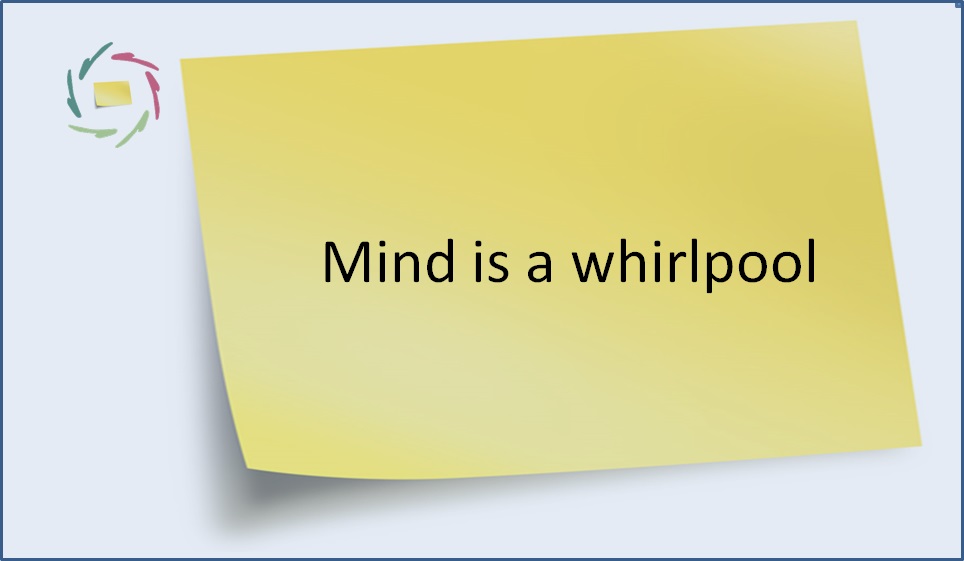36. Mind is a whirlpool

In 1977, a compatriot of mine, named Ilya Prigogine, received the Nobel prize for his theories about ‘dissipative structures’. Aren’t we all proud of him!
◊◊◊
The core of ‘dissipative structures’ is easily explained with an example. Mainly, when one puts enough ‘energy’ into a system, then in certain circumstances a new structure may arise with characteristics that are fully its own. That is: the new structure is not the prior structure anymore. For example: a stream of water that flows hard enough, may engender a whirlpool. This whirlpool is not the stream anymore. It’s something different, something that exists on its own, with very other characteristics than those of the stream.
◊◊◊
Mind is frequently looked upon as something that is the result of the working of the brain. First there is the brain, the working brain, and this ‘working’ gives rise to what we call ‘mind’. Or: ‘mind’ is the working of the brain, something like a computer program that is at run time nothing more than the working of the computer.
◊◊◊
But mind is extremely complex and is continuously working in all its complexity. This is: there is much ‘energy’ in it. In Prigogine-speak, one can see what directly comes from the brain, the result of its working, as the stream. Then mind itself is to me not like the stream, but more like the whirlpool: something with its own characteristics, something that exists on its own.
◊◊◊
So mind is a whirlpool… but that’s not the end.
◊◊◊
Mind also influences the brain. One thought brings about another thought. But a thought cannot be thought without, at microlevel, a change in the brain. Therefore every single thought that is brought about by another thought, brings with it a change of the brain. Mind, at the mind-level existing on its own, changes the brain.
◊◊◊
So brain makes mind… mind makes brain… but that’s not the end.
◊◊◊
It’s not like one makes the other first, and only then the other makes the one. It’s a continuous happening, in which the distinction of what exactly is happening, depends on how you prefer to look at it. Since the smallest change in the one is a change in the other, one may as well say that one and the other are the same thing.
◊◊◊
Brain is mind.
◊◊◊
But as you might have guessed… this too may well not be the end of things. It is however the end of this sticky thought.
◊◊◊


